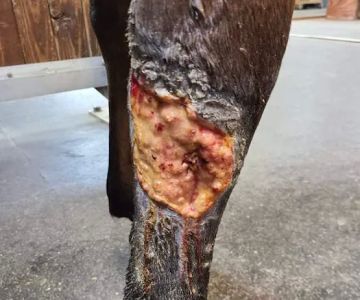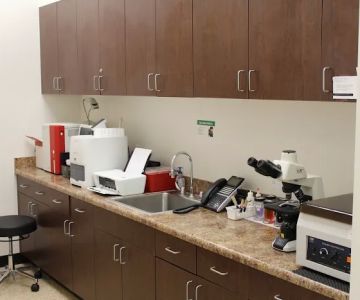What Classes Are Required for Veterinarian School?
Becoming a veterinarian is a rewarding yet demanding career. As an animal lover and someone passionate about helping creatures big and small, I’ve always admired veterinarians for their dedication. However, many people are often unsure about what it takes to pursue this path. One of the most common questions I get from aspiring veterinarians is, “What classes are required to become a veterinarian?” The journey to becoming a vet is filled with hard work, long hours of study, and a deep understanding of animals and medicine. If you’re interested in knowing what classes are essential to reach this goal, this article will provide all the necessary details to help you on your path to becoming a licensed veterinarian.
1. Basic Prerequisites Before Vet School
Before diving into the specific classes needed for veterinary school, it’s important to understand that aspiring veterinarians need to meet basic prerequisites before applying to vet school. These prerequisites often include undergraduate courses in subjects such as biology, chemistry, physics, and math. I remember when I was starting out, I felt like I was in a maze of science courses. But looking back, these foundational classes were critical in preparing me for the more advanced vet school coursework.
Many universities require applicants to complete a bachelor's degree, although some vet schools may accept students with only a few years of undergraduate study. During my time in undergrad, I focused on biological sciences, which gave me a solid understanding of animal physiology, anatomy, and genetics. Students often take courses in:
- General Biology
- Organic Chemistry
- Physics
- Mathematics (Calculus or Statistics)
- Biochemistry
- Microbiology
These courses help lay the groundwork for understanding the biological processes that are vital in the field of veterinary medicine. Most veterinary schools will also expect students to have strong grades in these foundational subjects, so it's important to focus on excelling in these courses during your undergraduate years.
2. Core Veterinary Classes
Once you're accepted into veterinary school, the real learning begins! The curriculum is designed to provide you with the comprehensive knowledge needed to diagnose, treat, and prevent diseases in animals. As I embarked on my vet school journey, I remember feeling overwhelmed by the sheer amount of information. However, these core courses are essential for building a deep understanding of veterinary medicine.
Here are some of the core courses that every veterinary student will take:
- Veterinary Anatomy and Physiology: This is where you’ll learn about the body systems of various animals. It’s fascinating to study how an animal’s body functions, from circulatory systems to neurological pathways.
- Pharmacology: Understanding medications, how they interact with animals’ bodies, and how to properly administer them is vital for any vet.
- Pathology: This course teaches you to diagnose diseases based on symptoms and biological changes in the animal's body. It’s one of the most challenging but crucial parts of vet school.
- Microbiology and Immunology: These subjects are essential for understanding how bacteria, viruses, and other pathogens affect animals, and how to treat them effectively.
- Veterinary Surgery: The hands-on skills you learn in surgery courses are critical. You’ll learn how to perform various surgical procedures, from routine spays and neuters to more complex operations.
- Veterinary Ethics and Law: This course teaches you the ethical considerations and legal responsibilities of being a veterinarian. It’s important to know your professional duties, especially when it comes to making tough decisions.
Each of these courses plays an integral role in equipping you with the knowledge and skills required to handle a wide range of animal health issues. I remember struggling with some subjects in the beginning, especially pharmacology, but through perseverance, I gradually became more comfortable with them.
3. Specialized Veterinary Classes
After completing the core courses, veterinary students can begin focusing on specialized areas of veterinary medicine. These specialized classes allow students to choose a particular area of interest. Some common specializations include:
- Small Animal Medicine: Focuses on the treatment and care of household pets like dogs, cats, and small mammals.
- Large Animal Medicine: Deals with the health and well-being of larger animals such as horses, cows, and farm animals.
- Exotic Animal Medicine: Covers the care of birds, reptiles, and other non-traditional pets.
- Emergency and Critical Care: This specialized track focuses on providing immediate care for animals in critical conditions.
- Dermatology: Focuses on the skin and coat of animals, treating allergies, infections, and skin conditions.
These specialized courses allow students to tailor their education to their career goals. When I entered my third year of vet school, I chose to focus on small animal medicine, which helped me work with household pets during my clinical rotations. Your choice of specialization can shape your future practice, whether you aim to work with pets, livestock, or even wildlife.
4. Practical Experience and Clinical Rotations
One of the most valuable aspects of veterinary school is the hands-on experience you gain during clinical rotations. These rotations allow you to apply the theoretical knowledge you’ve gained in a real-world setting. In my clinical years, I worked under the supervision of experienced veterinarians, performing check-ups, diagnosing illnesses, and even assisting in surgeries. The experience you gain during these rotations is invaluable, and it’s one of the main factors that prepare you for your future career.
These rotations typically cover a wide variety of specialties, including emergency care, surgery, internal medicine, and dermatology. As you progress, you'll also spend time learning how to manage a practice, communicate effectively with pet owners, and make critical decisions under pressure.
5. Licensing and Certification Exams
After completing all of the required courses and clinical rotations, you will need to pass licensing exams to become a fully certified veterinarian. In the U.S., the North American Veterinary Licensing Examination (NAVLE) is the most common exam for aspiring vets. This exam tests your knowledge and practical skills in various areas of veterinary medicine.
Preparing for this exam can be challenging, but it is a crucial step in becoming a licensed veterinarian. I remember studying for months, reviewing all the subjects we had learned in school, and practicing clinical scenarios. Passing the NAVLE is a huge milestone, and it’s the final step before officially becoming a veterinarian.
SEO Title: What Classes Are Required for Veterinarian School: A Complete Guide SEO Keywords: veterinarian school, veterinary classes, classes for becoming a vet, veterinary education, pet health SEO Description: Discover the essential classes required to become a veterinarian. Learn about the prerequisites, core courses, and specialized classes needed to succeed in veterinary school.










